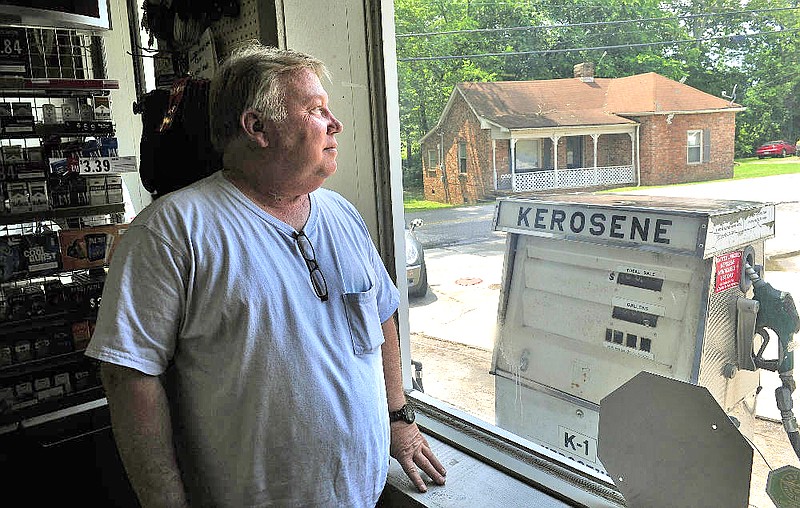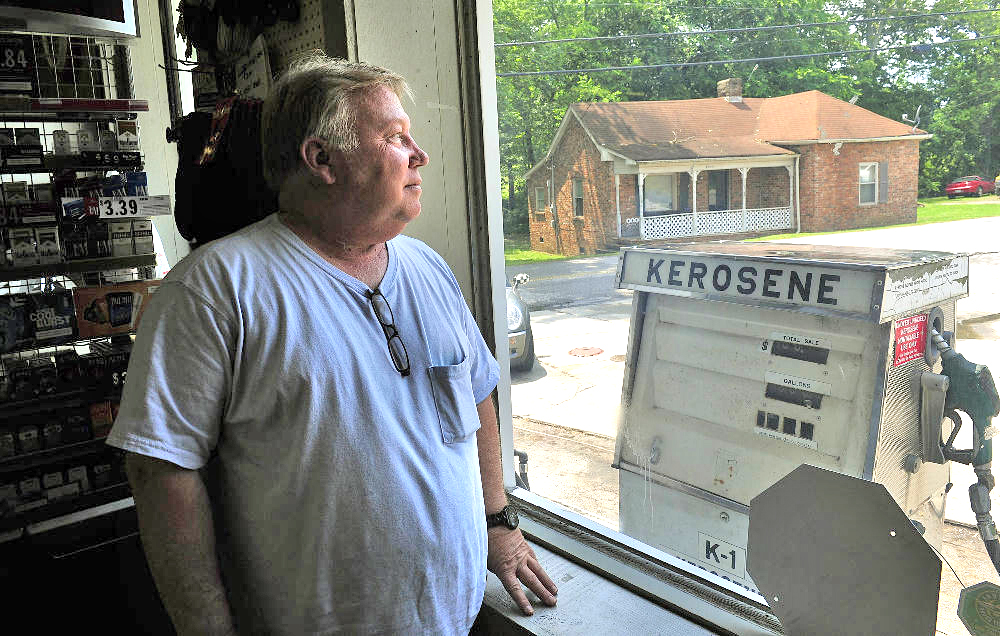NASHVILLE-The young woman was wrapped in a blanket, ushered by an FBI agent into a car and away from the brick Goodlettsville home where she had been held captive and sold for sex.
Before her rescue, she was taken to brothels in several cities, driven around by a man known by different names.
The victim was among a group of undocumented Hispanic women forced to work in brothels and serve as many as 30 men a day in Tennessee and across Southern states and cities, according to a federal indictment this month.
On May 4, the FBI swarmed the Goodlettsville home that sits across from a gas station on Old Springfield Highway in the Davidson County section of this county-line city.
"We were shocked when we heard that she was kidnapped and held there," said Randy Hand, owner of the gas station and convenience store.
"We saw the FBI and police go in there and walk out with the girl."
Tennessee is part of regional and multistate sex-trafficking rings, including one connected to a Somali gang in Minnesota. Twenty-nine people were indicted in November in a case that federal investigators said involved girls as young as 13 here and in Minnesota.
Five men accused of running a regional prostitution ring in Columbia, Tenn., were arrested in December and charged with human trafficking.
The Tennessee Bureau of Investigation showed in a recent study that 78 of the state's 95 counties have reported cases of sex trafficking over the past two years.
Davidson County was among four counties reporting more than 100 cases that involved minors, according to the report.
That sizable number prompted law enforcement officials to call for more training. On June 10-12, the TBI is holding a sex-trafficking conference in Nashville for law officers and the public. Information on attending the conference will be released this week.
The conference will cover educating officers on how to recognize a case of sex trafficking, said TBI spokeswoman Kristin Helm.
"A lot of victims picked up for prostitution don't tell that they are being forced into prostitution," Helm said. "Law enforcement wants to be better trained on identifying victims.
"One of the main things the study shows is that there are a lot more victims than there are criminal cases against traffickers," Helm said.
Tougher law passed
The traffickers are using large sporting events and concerts to sell prostitutes, a sex tourism approach, Helm said.
The state's highway system makes it attractive to traffickers to set up shop here, she said.
"It's very easy to move from event to event to promote these young people who are mentally and physically abused," Helm said.
Lawmakers also reacted. They passed legislation this year setting harsher penalties for patronizing prostitution.
Under the bill, sent to the governor Thursday, a john will be charged with a felony if he is caught with a prostitute younger than 18 or who has an intellectual disability. It's now a misdemeanor.
The woman held in Goodlettsville was living in a small room with her captor shuttling her to several locations, including nearby Madison.
The suspect, Freddy Torres, who was arrested May 4, also is accused of transporting prostitutes in interstate commerce and conspiring to harbor illegal immigrants.
Many brothels
Federal agents say he was part of a crew running brothels in Louisville, Ky., and in the Tennessee cities of Knoxville, Morristown, Johnson City, Bristol, Kingsport and Goodlettsville.
They would set up rental properties as brothels, according to a 13-count federal indictment. As in many sex cases, almost all of the addresses and names on the indictment were blotted out before it was released.
Torres also lived in a trailer park in Madison. He told his roommate there that his name was Julian and that he worked in a factory.
"I didn't even know his name until the FBI came over here," said Mateo Velasco, who moved into the trailer a couple of months ago.
"He'd come in late at night, and I thought he was coming home from his job."
The FBI went inside the trailer and grabbed note pads, more than a dozen cellphones, bank documents, a video camera and other paperwork.
Victims get help
Federal authorities and court records don't say how many women were involved in the sex ring.
There is no way to determine the number of cases of sex and human trafficking in the state, but with such high-visibility cases, more will be uncovered, law officers said.
The FBI, which can't discuss any of the pending cases, said authorities rely on social service and advocacy agencies to ferret out cases.
"Victims are more willing to talk to them, and these nonprofits have a dialogue with federal, state and local law enforcement," said Special Agent Keith Moses, who heads the FBI's Nashville office.
Victims are helped by groups such as Free for Life International, a Franklin nonprofit founded by Colette Bercu.
The organization helped one of the victims of the recent case, giving her food and clothes. Bercu, of Franklin, started the nonprofit in 2005 and works with sex trafficking victims in Nicaragua, Nepal and India, partnering with international shelters.
Bercu then started another initiative called En Acción - In Action - recognizing the Hispanic victims.
"We were finding that it [Hispanics] was one of the hardest-hit communities when it came to trafficking," she said. "I don't know if it's awareness or we are just seeing more cases.
"It's just pretty unbelievable that this is going on."

